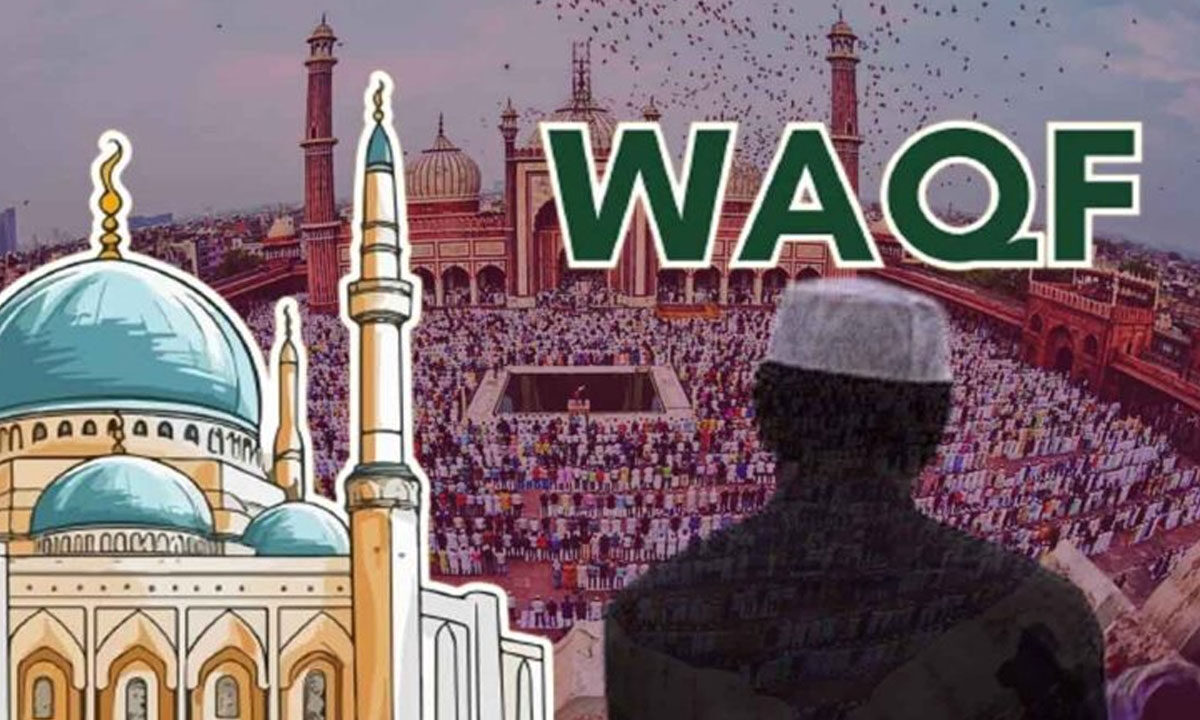Supreme Court Pushes Waqf Act Case to May 15 as CJI Khanna Bows Out Without Passing Order
However, the bench led by Chief Justice Sanjiv Khanna deferred the matter to May 15, when it will be heard by a new bench headed by Justice B R Gavai, who is set to take over as the next Chief Justice of India on May 14.

New Delhi: The Supreme Court on Monday resumed hearing a series of petitions challenging the constitutional validity of the Waqf (Amendment) Act, 2025. However, the bench led by Chief Justice Sanjiv Khanna deferred the matter to May 15, when it will be heard by a new bench headed by Justice B R Gavai, who is set to take over as the next Chief Justice of India on May 14.
Table of Contents
Petitions to Be Heard by Incoming CJI Gavai
During the proceedings, CJI Khanna, who retires on May 13, said he did not wish to reserve orders on such a significant matter. “This matter has to be heard reasonably before an order is passed,” he observed, as he referred the batch of pleas to a new bench led by Justice Gavai.
The Supreme Court has officially fixed the hearing of the Waqf law case for May 15, under the leadership of the incoming Chief Justice.
Pleas Challenge Constitutional Validity of Waqf Act
The case involves five key petitions, including those filed by Congress MP Mohammed Jawed and AIMIM chief Asaduddin Owaisi, challenging the Waqf (Amendment) Act, 2025. The petitioners argue that the law is “unconstitutional” and violates several fundamental rights and constitutional provisions.
Centre’s Assurance and Legal Stand
Ahead of the hearing, the Centre had assured the court on April 17 that it would not denotify any waqf properties—including “waqf by user”—or make appointments to Waqf Boards or the Central Waqf Council until May 5. The court had noted this and declined to issue a stay but ensured that no waqf property would be disturbed until the next hearing.
In an affidavit filed on April 25, the Centre opposed any blanket stay, asserting that the law carries a presumption of constitutionality as it was passed by Parliament through due process. It also defended the provision concerning “waqf by user” and cautioned against judicial interference.
Widespread Opposition to the Law
The Act, which received Presidential assent on April 5, was passed in the Lok Sabha with 288 votes in favour and 232 against, and in the Rajya Sabha with 128 supporting and 95 opposing. Political parties like the DMK, YSRCP, AIMIM, Left parties, and organizations such as the All India Muslim Personal Law Board (AIMPLB) and several NGOs have challenged the law, raising concerns over its implications.
The court will now take up the matter afresh on May 15 under Chief Justice-designate B R Gavai, marking a significant turn in the legal challenge to the controversial law.
